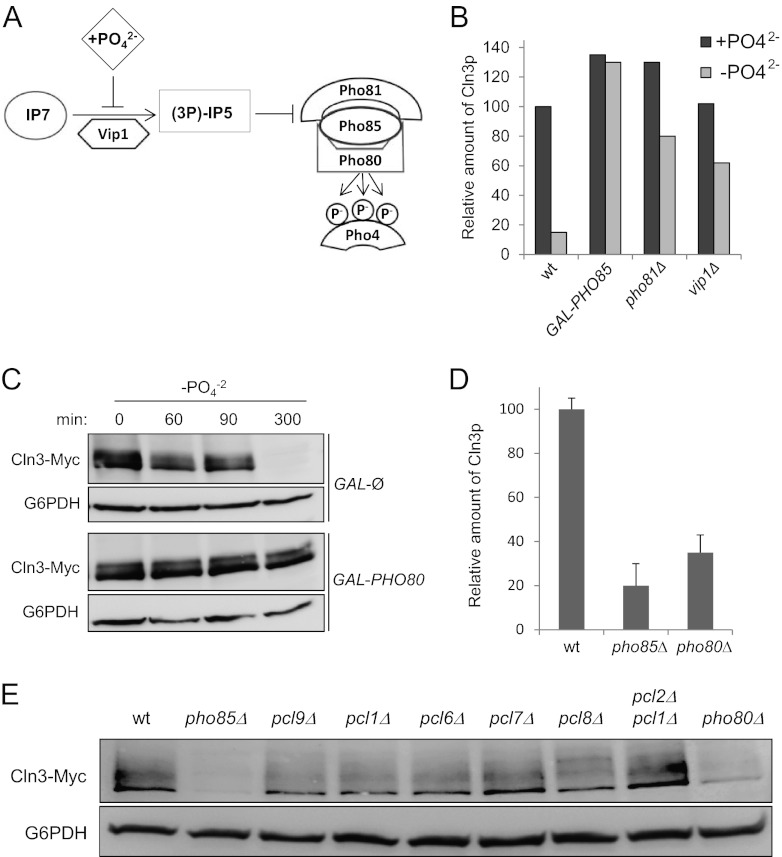Fig 4.
Phosphate controls cellular levels of Cln3 by modulating the PHO pathway. (A) Schematic of the PHO pathway. During phosphate starvation, Vip1 causes an increase in the levels of inositol heptakisphosphate (IP7), which binds to and changes the conformation state of Pho81, leading to the inactivation of Pho85/Pho80 complexes. (B) Relative amounts of Cln3-Myc in different strains. Wild-type (wt), pho81Δ, and vip1Δ strains were grown in synthetic complete medium with (+PO42−) or without (−PO42−) phosphate. After 5 h, the levels of Cln3-Myc were quantified by immunoblotting using monoclonal antibodies. Cells of the Gal1-PHO85 strain (a wild-type strain that carries a centromeric plasmid with PHO85 expressed under the Gal1 promoter) were grown for 5 h in synthetic complete medium with galactose as a carbon source, either with or without phosphate. (C) Pho80 is necessary to maintain high levels of Cln3. As described for panel B, wild-type (GAL-Ø) and GAL1-PHO80 strains were grown in synthetic complete medium in the presence of galactose without phosphate (−PO42−). Levels of Cln3-Myc were quantified by immunoblotting using monoclonal antibodies. (D) Pho80 is necessary to maintain high levels of Cln3. Quantification of data in panel E (data ± standard deviations from four independent experiments) is shown. (E) Pho80 is necessary to maintain high levels of Cln3. A plasmid with a Cln3-Myc epitope tag was introduced in strains with the indicated mutations for deficiency of the different Pho85 cyclins. After 3 h of exponential growth in YPD, the levels of Cln3-Myc were analyzed by immunoblotting.

